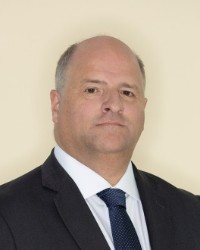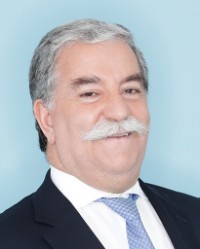Patent Litigation 2025
Portugal
Trends and Developments
Litigating Patents in Portugal in 2025
The past couple of years have been interesting in terms of patent litigation in Portugal, even though the number of judicial cases has been decreasing since 2021. The novelty, however, was the filing of the first – and, so far, unique – case at the local division of the Unified Patent Court (UPC) in Lisbon.
This is in stark contrast to 2012–17 – during which, hundreds of arbitral actions were filed and judged. In fact, since Law 62/2011 was amended by the current Industrial Property Code (2018), the number of patent cases has significantly decreased.
The reason is quite simple. Law 62/2011 established a mandatory arbitration system whereby, in disputes that involved holders of pharmaceutical patents seeking to enforce their rights against generic drugs, the publication of a marketing authorisation application for a generic medicine triggered a legal term of 30 days for the patent holder to file an arbitration proceeding. This caused a significant patent litigation scenario in Portugal until the end of 2017.
The amendment of Law 62/2011 saw the establishment of a voluntary arbitration system that replaced the mandatory one. Since January 2018, the publication of a marketing authorisation application for a generic medicine has triggered a legal term of 30 days in which the patent holder may file a voluntary arbitration proceeding – which implies the agreement of the parties to submit the dispute before an arbitral tribunal – or, if there is no agreement on that question, the patent holder must file a legal action before the Intellectual Property Court. Considering that there is usually no agreement between the parties to take the arbitration route, the patent litigation cases were filed in the aforementioned estate court and this actually led to a decrease in the patent litigation cases in Portugal concerning pharmaceutical and biotech patents and generic medicines.
The law change has also meant that a considerable number of agreements between pharma originator companies (ie, patent holders) and generic companies have resulted in the avoidance of costs and sluggish legal proceedings. As regards other patents (eg, mechanical patents), some important cases are pending – notably, regarding medical devices.
Patent cases
Although the number of patent litigation cases has not been high, there have been a couple of interesting proceedings regarding the enforcement of pharma and biotech patents, as well as some cases related to patented medical devices. Specifically, the authors have represented pharmaceutical companies in legal proceedings where the discussion of classic matters such as literal infringement, infringement by equivalence, novelty, inventiveness, and sufficiency took place.
The Intellectual Property Court has a tendency to assess sufficiency in a much more in-depth way, contrary to what happened in the past few years. Judgments on infringement by equivalence are also growing, with a much better technical approach. The Intellectual Property Court is also increasing the use of expert evidence in the assessment of infringement and validity – normally at the request of the parties or ordered by the court on an ex officio basis.
Patented medical devices
In cases involving patented medical devices, discussions concerning the inventiveness of the enforced patents basically focus on the problem–solution approach, as per the case law of the Boards of Appeal of the European Patent Office.
Appeals before the Court of Appeal of Lisbon regarding decisions of the Intellectual Property Court are also being argued, with some of them still pending.
In order to obtain a preliminary injunction, if there is no actual launch onto the market of a generic product that infringes a patent, the patent holder must evidence irreparable harm within the legal concept of periculum in mora. Conversely, if the generic is launched onto the market, the patent holder should only evidence the existence of the patent right and the infringement, which is what the Directive 2004/48/EC of the European Parliament and of the Council of 29 April 2004 on the enforcement of intellectual property rights (the “(IPR) Enforcement Directive”) expressly states.
As to the mandatory legal action before the Intellectual Property Court under the amended Law 62/2011, if no voluntary arbitration has been agreed by the parties, the jurisprudence of the Court of Appeal of Lisbon remains stable regarding the legal standing and procedural interest of a patent holder in filing such action. In other words, the patent holder has an explicit procedural interest in filing this specific legal action to legitimately enforce its patent rights.
Supplementary protection certificate cases
As far as supplementary protection certificate (SPC) litigation is concerned, the pending cases are still focused on the fulfilment of the legal requirements established by Article 3(a) and Article 3(c) of Regulation (EC) No 469/2009 of the European Parliament and of the Council of 6 May 2009 concerning the supplementary protection certificate for medicinal products (the “Supplementary Protection Certificate Regulation” (SPCR). The tendency of the Intellectual Property Court and the Court of Appeal of Lisbon is to follow the ECJ – notably, its decisions in MIT (C-431/04), GSK (C-210/10), Fosgren (C-631/13), Bayer Cropscience (C-11/13), Eli Lilly (C-493/12), Gilead (C-121/17) Santen (C-673/18) and Royalty Pharma (C-650/17).
The Intellectual Property Court has decided that a product protected by an SPC is protected:
- where the active principle is claimed in the basic patent; and
- where the active principle is not directly claimed in the basic patent but the functional definition formulae of the claims, interpreted in light of the description of the basic patent, implicitly contain and necessarily identify the active principle in a specific form.
In addition, a very important decision from the Court of Appeal of Lisbon granted an SPC based on the following assumptions: “If it is demonstrated that a non-active principle (excipient) – combined with an active principle – produces a pharmacologic, immunologic or metabolic effect per se covered by the therapeutic indications contained in the marketing authorisation. An excipient can be included in the definition of the product established by Articles 1(b) and 3(a) of [the SPCR] in the [event] that the excipient of a pharmaceutical product per se has therapeutic efficacy on its own covered in the marketing authorisation.”
This is a landmark judgment not only because it reverted the refused SPC decision from the European Patent Office and the Intellectual Property Court decision rendered in an appeal, but also because the authors believe that it was the first grant of an SPC in the EU under the noted circumstances.
Increase in IT and trade secrets litigation
Portugal is witnessing an increase in litigation regarding patents in the field of telecommunications and IT. Furthermore, the so-called computer-implemented inventions are also subject to a large number of litigation cases, similarly involving copyright issues.
Software in general is not patentable in Portugal. However, if the software has a technical contribution that is novel and inventive and has industrial applicability, it can be protected by a patent. The computer-implemented inventions are therefore software patents and this area is being quite well developed in Portugal – notably, through a large number of start-ups.
Following this significant development, it is inevitable that disputes concerning software patents are on the rise. Trade secrets is another area in which there are a number of legal disputes and the authors believe that these are equally set to increase.
Portuguese division of Unified Patent Court in Lisbon
The local division of the UPC in Lisbon is composed of one Portuguese judge and two non-Portuguese judges, so as to maintain consistent jurisprudence between the various local divisions of the UPC, regardless of their geographical location. Local UPC divisions will have jurisdiction to settle – among other matters – patent infringement actions, cease-and-desist issues, and damages actions. In addition, some matters of invalidity or non-violation of a patent may also fall within the jurisdiction of these local divisions.
There are certain advantages regarding patent litigation in the Portuguese local division.
- First, and despite the fact that local law is only applicable in specific situations, the local division’s Portuguese judge and the local lawyers may transpose the cross-examination process used in the hearing of experts and witnesses in trials into UPC proceedings – thereby helping to shape jurisprudence. As a matter of fact, the Portuguese procedural system uses cross-examination and it may be the case that the long-standing experience of the Portuguese UPC judge and lawyers with such system is transposed into UPC proceedings. (The use of cross-examination can be seen as best practice in court hearings.)
- Second, the costs of the proceedings (both court and legal fees) are lower than in several other EU countries. Portuguese legal fees are considerably less expensive compared to those in other legal markets. This is something that companies really should evaluate more closely.
Expectations for the Lisbon division of the UPC are high and demanding and the court received its first case in June 2024. The case concerns a preliminary injunction between Ericsson and Asus over a telecommunications patent – although it is not a standard essential patent case. The case was decided in four months, which represents a great improvement in comparison with the timeframe for national cases. Both parties were represented by international teams that included local law firms such as Abreu Advogados. The decision held the validity and the infringement of the patent asserted, as well as the balance of rights in favour of the patentee, but the case was dismissed on the ground of lack of urgency.
The experience gained in the sole and unique case thus far filed at the Lisbon local division of the UPC could provide important guidance in the management of future cases, given that the different timeframes of the UPC proceedings and the different approach to assessing whether to grant a preliminary injunction actually diverge from national law. The quality and consistency of the UPC judicial decisions is a key factor for the success of the new system. Hence, the above-mentioned advantages of the local division in Lisbon should be duly considered.
Outlook for 2025
The growing trend in judicial litigation concerning patented medical devices, SPCs, IT and TMT patents, computer-implemented inventions, and trade secrets looks set to continue in 2025.
Legal questions related to the scope and extension of protection through SPCs are expected to remain and the new legislation that is being prepared should be carefully examined. The technical and legal approach of the Intellectual Property Court and the Court of Appeal of Lisbon are not expected to change substantially.
The impact of the UPC is now being felt, after more than a year of practice (including at the Lisbon local division). Jurisdictional diversity among local divisions means independent and autonomous jurisprudence will be a challenge for all.
Abreu Advogados
Avenida Infante Dom Henrique 26
1149-096 Lisbon
Portugal
+351 217 231 800
+351 217 231 899
lisboa@abreuadvogados.com www.abreuadvogados.com/



